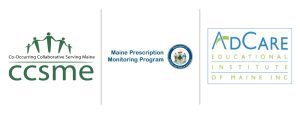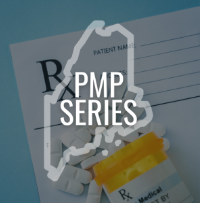Description
Monday, April 1, 2024, 12:00-1:00pm
Description
In Spring 2024 the most recent version of the Beers® criteria was published. With new criteria come important changes in prescribing recommendations. Dr. Springer will walk you through the updated criteria, discussion common and important medication issues in geriatric pharmacotherapy, and introduce free resources to help you reduce the use of the potentially inappropriate medications in your practice.
Objectives
– Identify common medications and medication classes defined as Potentially Inappropriate Medications (PIMs) among older adults.
– Compare the evidence and rationale for medications to use with caution versus to avoid altogether in older adults.
– Adapt prescribing practices to include non-pharmacological and alternative pharmacological therapies where PIMs were previously utilized.
Presenter
 Sydney Springer, PharmD, MS, BCPS, BCGP | Dr. Sydney Springer is a Geriatric Pharmacist and Assistant Professor at the University of New England School of Pharmacy. Dr. Springer obtained her Pharm.D. from the University of Rhode Island College of Pharmacy, and her Masters in Pharmaceutical Outcomes and Policy Research from the University of Pittsburgh. Upon graduation from pharmacy school she began her post-graduate education – first with a two-year residency program focused on geriatric pharmacotherapy at the University of Pittsburgh Medical Center, and then at the University of Pittsburgh and VA Pittsburgh Healthcare System where she completed a 2-year fellowship in Medication Safety and Pharmacy Outcomes. Dr. Springer actively engages in deprescribing research. She most recently published her work on the attitudes of older adult Mainers on deprescribing, and is working with peers at the University of North Carolina and the University of Pittsburgh on an NIH grant focused on the outcomes of deprescribing aspirin near end of life. In her clinical practice she has been deprescribing patients with polypharmacy, on long-term benzodiazepines and opioid agonist, and she enjoys teaching providers and students alike.
Sydney Springer, PharmD, MS, BCPS, BCGP | Dr. Sydney Springer is a Geriatric Pharmacist and Assistant Professor at the University of New England School of Pharmacy. Dr. Springer obtained her Pharm.D. from the University of Rhode Island College of Pharmacy, and her Masters in Pharmaceutical Outcomes and Policy Research from the University of Pittsburgh. Upon graduation from pharmacy school she began her post-graduate education – first with a two-year residency program focused on geriatric pharmacotherapy at the University of Pittsburgh Medical Center, and then at the University of Pittsburgh and VA Pittsburgh Healthcare System where she completed a 2-year fellowship in Medication Safety and Pharmacy Outcomes. Dr. Springer actively engages in deprescribing research. She most recently published her work on the attitudes of older adult Mainers on deprescribing, and is working with peers at the University of North Carolina and the University of Pittsburgh on an NIH grant focused on the outcomes of deprescribing aspirin near end of life. In her clinical practice she has been deprescribing patients with polypharmacy, on long-term benzodiazepines and opioid agonist, and she enjoys teaching providers and students alike.
Audience
Prescribing clinicians and their teams
Continuing Medical Education
This activity has been planned and implemented in accordance with the accreditation requirements and policies of the Accreditation Council for Continuing Medical Education (ACCME) through the joint providership of the Maine Medical Education Trust and CCSME. The Maine Medical Education Trust is accredited by the Maine Medical Association Committee on Continuing Medical Education and Accreditation to provide continuing medical education for physicians.
The Maine Medical Education Trust designates this regularly scheduled series for a maximum of 1 AMA PRA Category 1 Credit™. Physicians should only claim credit commensurate with the extent of their participation in the activity.
This activity qualifies for 1 credit of the 3 CME credit requirement for opioid medication education found in P.L. 2015, Chapter 488, Maine’s legislation to address the opioid drug crisis. It additionally qualifies for 1 credit of the 8 credit requirement set by the DEA MATE act.
*Nurse Practitioners, Physician Assistants, and other non-physician prescribers will be awarded a certificate of participation with a maximum of 1 AMA PRA Category 1 Credit™.
Contact Hours
1 contact hour for social workers, licensed clinical professional counselors, and behavioral health professionals.
1 Category I contact hour for psychologists are provided. CCSME is a pre-approved sponsor and provider of Professional Education Activities for Psychologists.
1 contact hour CHES. CCSME is a designated provider of continuing education contact hours (CECH) in health education by the National Commission for Health Education Credentialing, Inc.




